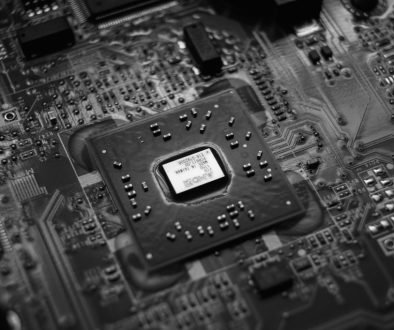Meituan Invests in Chinese AI Startup Flexiv
There is a lot going on in the world of artificial intelligence these days. You may not know it, but China is ranked among the top three for publications in peer-reviewed Chinese AI. In addition, the country is home to the largest market for companies in this field. The following article is a look at one such company: Meituan, who recently invested in a Chinese AI startup called Flexiv.
China is Flexiv’s largest market
In the world of robotics, China remains the largest market for robots. With an estimated 1.3 billion people, China is a big market that has plenty of room for new innovations. One company that is making inroads into the Chinese market is Flexiv. This company provides a wide range of services and products that can be used in a variety of industries.
Flexiv specializes in developing adaptive robots. These robots are capable of performing complex tasks in multiple industries. They are also able to adapt to changing environments. As a result, these robots are able to perform a variety of tasks while still imitating human dexterity.
Flexiv mainly builds robots for manufacturing purposes. However, the company is planning to expand into other industries, such as healthcare and service trade. Using Chinese AI-controlled all-purpose robots, the company is hoping to help businesses in a variety of areas. It has already formed strategic partnerships with several leading manufacturers in China.
The company’s latest series of funding is a significant increase from the previous round. The new funding will be used to enhance the company’s technology and product line, as well as build AI-based features. Investors have also committed to investing more than a hundred million dollars to the venture. Some of the most active investors include Meituan, YF Capital, Gaorong Capital, and Meta Capital.
Flexiv AI Startup has built an industry-leading adaptive robot that can be deployed in various sectors, including automotive, internet, and 3C electronics. These robotics can help reduce the labor cost of factory managers. During a recent demonstration, a Flexiv robot completed a sample-taking cycle in only 28 seconds.
At the 22nd China Industrial Industry Fair, Flexiv demonstrated the company’s newest development, Rizon. It is a robotic system that can carry out high-precision assembling, grinding, and polishing jobs. It is also capable of operating in a range of challenging environments, thanks to its proprietary force-control technology. In the future, the company will develop universal robots that can perform a wider variety of tasks.
According to the company’s founder, Shiquan Wang, Flexiv’s primary business model is to design and manufacture adaptive robots. The company also provides turnkey solutions to customers, which allow them to use these robots in their operations. While the company has developed 100 adaptive robots to date, it plans to introduce a variety of other innovative technologies to the market.
The company is now demonstrating its latest developments at the World Artificial Intelligence Conference, which will take place in Shanghai from April 4-6. About 300 guest speakers will be in attendance. There, Flexiv will also exhibit its robotic masseur and fully automated covid testing robot.
Currently, the company employs more than two-thirds of its workforce in China. Its investment in the country demonstrates the importance of AI in driving innovation for businesses.
China is ranked Top three worldwide for peer-reviewed AI publications
China is now the world leader in the production of peer-reviewed AI-related publications. However, the country faces a number of unique challenges that may affect its continued progression. One of the most noteworthy challenges is the lack of clear regulations for protecting user privacy. Another challenge is China’s lack of breakthrough technologies that can propel its AI development. In the short run, the country’s technological developments are largely limited to consumer-facing applications.
However, as the market for AI-related products and services continues to grow, Chinese firms are finding themselves with opportunities to build databases and explore different AI applications. These companies are also working on AI technologies to improve healthcare, enhance diagnostics and improve patient care. While the Chinese market is big, it’s changing quickly, and some of the country’s best performers are latecomers.
There’s also a lack of technology transfer between Chinese researchers and industry, which hinders the development of advanced AI systems. For example, Chinese firms specializing in visual recognition wouldn’t be able to thrive as quickly in a country with stricter privacy rules. This lack of innovation could pose a problem for the future of AI development in the country.
benefit of China’s AI Startup progress
A key benefit of China’s progress is the country’s huge market. Thanks to its massive consumer base, China’s economy is ready for the AI revolution. The government is encouraging the development of a specialized AI sector by offering incentives. Some examples include national endorsements and funding.
Other measures to boost China’s AI development include increased interdisciplinary collaborations and more openly shared research. Many academic institutions in China are owned and operated by the government, which makes them a powerful force in the AI field. Although Chinese scientists publish more research papers, the amount of such publications is actually relatively small. On the other hand, China’s AI researchers secure more patents than their U.S. counterparts, a fact that is likely to change over time.
Despite the challenges, there are reasons to believe that the nation’s AI development will continue to move ahead. China is already on the verge of becoming the world’s largest research power. If it can capitalize on its advantages in size and market share, it could become the leading AI player in the next decade.
It is also possible that China will not be able to catch up in the long run. To be sure, the country is catching up, but the benefits may not be all that impressive. As with any technology, the long term effects of its improvements are not yet fully known. Nonetheless, its rapid AI-related advancements are clearly making a difference in Chinese society. Moreover, China is building the foundations for a new era of enterprise software and enterprise-software industries, which will support necessary technological advances.
Flexiv received a $100 million dollar investment from Meituan
Flexiv, a company in the world of robotics and software, has recently received a funding of over $100 million. The Chinese company is working on adaptive robots to transform the manufacturing industry and develop new applications in broader industries.
The company has a good track record of developing and testing intelligent robots. It also has a solid foundation with its investors and partners. As a result, the company has a strong reputation and is able to attract new talent. In fact, the company has already sent 100 robots to its customers in China.
Flexiv is a robotics and software company that is developing advanced AI technologies to improve its products and services. The company is already gaining interest from major Chinese companies, including the on-demand food delivery service Meituan, which has invested in the company.
Meituan’s investment in Flexiv shows that it views artificial intelligence as essential to enhancing business innovation. Moreover, the investment indicates the importance of artificial intelligence in driving innovations within the internet industry. With the help of the company’s robots and other AI-driven solutions, the food delivery company could automate its business.
purpose Chinese AI system
The company has developed a software called Noema, which is a general purpose AI system that is capable of performing a variety of tasks. It is able to perform human-robot interaction and complex pose estimation. Additionally, it has WLAN connect capabilities and can be adapted to a variety of industries.
The company’s RDK, or Robot Development Kit, makes it easy for developers to create Chinese AI-driven general-purpose robots. It features drag-and-drop visual programming and a user-friendly human-robot interface. This software gives the Rizon robotic arm a high degree of precision and responsiveness.
Flexiv’s technology provides customized intelligent robots to various industrial sectors in China. Currently, the company’s products include a series of robots that are designed for power-controlled assembly, polishing, and sanding. These robots are used to increase production levels. They have been successfully deployed in several fields.
Flexiv is a growing company that is already integrating its Chinese AI technologies into a wide array of industries. The company is looking to expand its clientele and generate revenue by licensing its software and selling its robotic products. By implementing its software in its core business, it can increase its revenue and gain the trust of stakeholders.
Although the investment has already helped the company reach important milestones, the company is still far from being profitable. However, Flexiv’s funding will allow it to further expand its capabilities and reach a wider audience. The robotics and software company is in a strong position to take on its larger competitors and grow in the future.
Flexiv’s investment has also helped the company attract new talent. So far, two-thirds of the company’s staff are employed in China.



